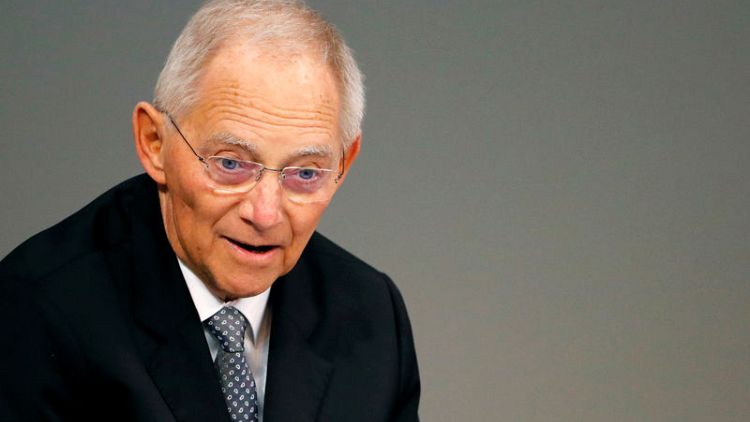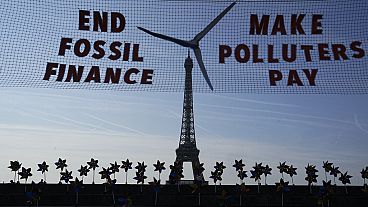BERLIN (Reuters) - Former German finance minister Wolfgang Schaeuble, the mastermind behind Berlin's "black zero" budget policy of not taking on new debt, has called for a reappraisal of its fiscal policy to meet the challenges arising from climate change and digitalisation.
Schaeuble's words carry weight among Chancellor Angela Merkel's conservatives and could influence a debate about whether Berlin should use new debt to boost public investments to help the economy, which is on the brink of recession.
Speaking at a business event in Berlin, Schaeuble said that 70 years after the founding of Germany's Federal Republic, politics and business faced the task of re-adjusting the economy in the face of globalization and digitization.
Schaeuble, now president of the Bundestag, the lower house of parliament, said the government had to do better to reconcile three different aspects of sustainability - economic, social and ecological.
"This includes taking the risk to think new things beyond the status quo," Schaeuble said, according to the text of his remarks.
"The willingness to question one's own mentality to some extent, possibly even our traditional model, first of all to save, then to invest what has been saved - because it turns out to be not dynamic enough given the challenges we need to respond to."
"It's about being more flexible, more courageous - but not overdoing it," Schaeuble said, adding that the government should continue to practice moderation in permanently combining ecological and economic sustainability.
Merkel's government has managed to raise public spending without incurring new debt since 2014 thanks to an unusually long growth cycle, record-high employment, buoyant tax revenues and the European Central Bank's bond-buying plan.
But Germany's borrowing costs are sinking to new lows almost daily and its economy cooling as foreign demand weakens. Calls to provide extra fiscal stimulus by running a small deficit again are growing louder.
The head of the powerful BDI industry association earlier on Wednesday raised the pressure on Berlin to rethink its budget priorities, saying Germany should ditch its policy of not taking on new debt in light of zero borrowing costs and huge investment needs.
Under the constitutionally enshrined debt brake, the federal government can take on new debt of up to 0.35% of economic output. That would be roughly 5 billion euros in 2020 after special factors such as growth have been taken into account.
The permitted debt would rise to 8.4 billion euros in 2021 and 9.7 billion euros in 2022, according to budget experts in parliament.
Schaeuble himself called on politicians to use the fiscal leeway of the constitutionally enshrined debt rules, implying that the no new debt policy should not be a mantra anymore.
"The global problems ... can only be solved if we invest more in other countries. This requires ideas for new approaches that allow such investments within the limited scope of our debt brake," Schaeuble said.
(Reporting by Michael Nienaber, editing by Larry King)



